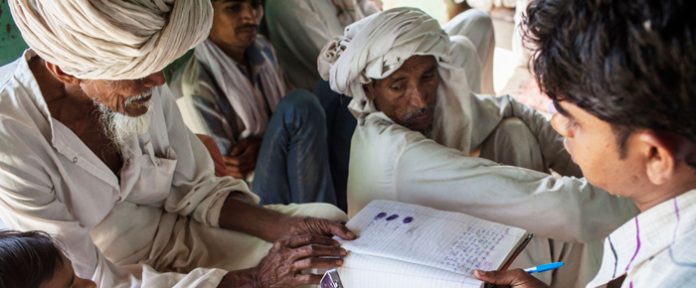International Literacy Day — 8 September
The development of the modern world, the accession to independence of a large number of countries, the need for the real emancipation of people and for the increasingly active and productive participation in the economic, social and political life of human society, of the hundreds of millions of illiterate adults still existing in the world, make it essential to change national education policies,” reads the final report published at the end of the World Conference of Ministers of Education on the Eradication of Illiteracy, which was held in Tehran, Iran on 8 – 19 of September, 1965. The same conference also gave rise to the idea of holding an annual International Literacy Day.
Subsequently, the 8th of September was proclaimed International Literacy Day by UNESCO at the 14th session of UNESCO’s General Conference on 26 October 1966 to remind the international community of the importance of literacy for individuals, communities and societies, and the need for intensified efforts towards more literate societies.
Since the first International Literacy Day in 1967, celebrations have taken place annually around the world, coordinated by UNESCO, countries and partners, to advance the literacy agenda at global, regional and national levels.
International Literacy Day is an opportunity for Governments, civil society and stakeholders to highlight improvements in world literacy rates, and reflect on the world’s remaining literacy challenges. The issue of literacy is a key component of the UN’s Sustainable Development Goals and the UN’s 2030 Agenda for Sustainable Development.
Despite the passage of more than five decades, it is a matter of great angst to all of us with the ability to read and write that there are more than 750 million among us that do not have the privilege to read or write their own names in their mother-tongue. Over the past 55 years, the concept of literacy has evolved from basic reading, writing and numeracy skills to broader notions such as functional literacy and a foundation for lifelong learning, but the fact remains that many have still to master the fundamentals of literacy. Figures provided by the UNESCO Institute for Statistics (UIS) show that despite the steady rise in literacy rates over the past nearly 55 years, there are still more than 750 million illiterate adults around the world, most of whom are women. Numbers from UIS also show of the global illiterate population, the largest cohort of 508 million illiterates are in the 25 to 64 age group; the majority of them in South and West Asia (271 million), and in sub-Saharan Africa (131 million).
The same two regions of the world also topped when it came to the 100 million illiterate youth in the 15 to 24 age group, with 39 million in South and West Asia and 48 million in sub-Saharan Africa. Even more worryingly, there are currently over 262 million children of school age, adolescents and youth of primary and secondary school age, who are out of school across the world, with 192 million of them living equally divided between South and West Asia and sub-Saharan Africa.
The fact that there are more people in the 25 to 64 age group who are illiterate point to the need for national educational plans to include schooling for children and literacy training for adults as parallel elements. At the Tehran Conference where the idea of International Literacy Day originated the need for adult education was emphasized in the final communique which stated: “Education systems must provide for the educational training needs of both the young generations who have not yet begun working life, and the generations that have already become adults without having had the benefit of the essential minimum of elementary education.”
The numbers produced by UIS are a stark reminder of the work ahead to meet the Sustainable Development Goals (SDGs), especially Target 4.6 to ensure that all youth and most adults achieve literacy and numeracy by 2030. The UN’s Sustainable Development Goals, adopted by world leaders in September 2015, promotes, as part of its agenda, universal access to quality education and learning opportunities throughout people’s lives. Sustainable Development Goal 4 has as one of its targets ensuring all young people achieve literacy and numeracy and that adults who lack these skills are given the opportunity to acquire them.
The theme for this year’s International Literacy Day is ‘Literacy and Multilingualism’ provides us with an opportunity to express solidarity with indigenous languages and the 25th anniversary of the World Conference on Special Needs Education. Despite progress made, literacy challenges persist, distributed unevenly across countries and populations. Embracing linguistic diversity in education and literacy development is central to addressing these literacy challenges and to achieving the Sustainable Development Goals.
On the occasion of International Literacy Day 2019, the main characteristics of multilingualism in today’s globalized and digitalized world could be discussed, together with their implications for literacy in policies and practices in order to achieve greater inclusion in multilingual contexts.
International Literacy Day is an apt occasion for all of us who have the privilege to read and write to raise awareness among the public on the illiteracy which chokes the potential of so many hundreds of millions of our fellow global citizens. It is also an opportunity for those literate to help mobilize political will and resources to address this global problem.























